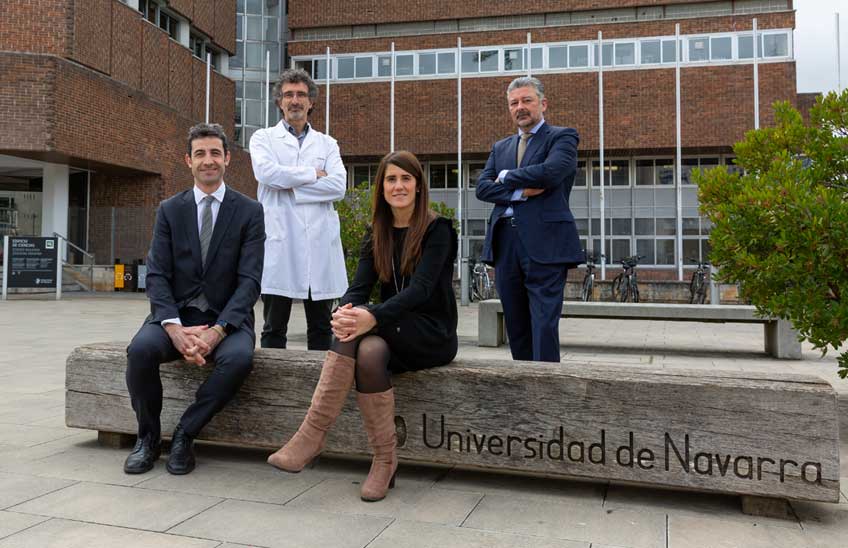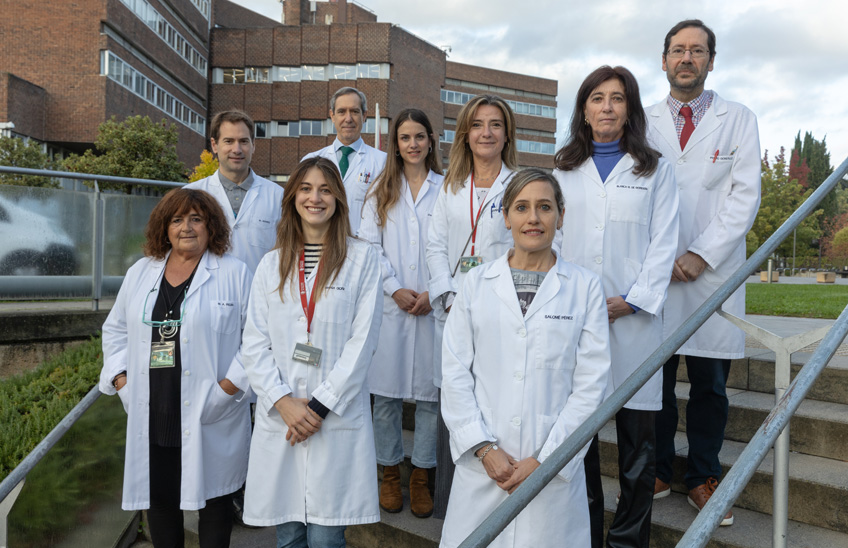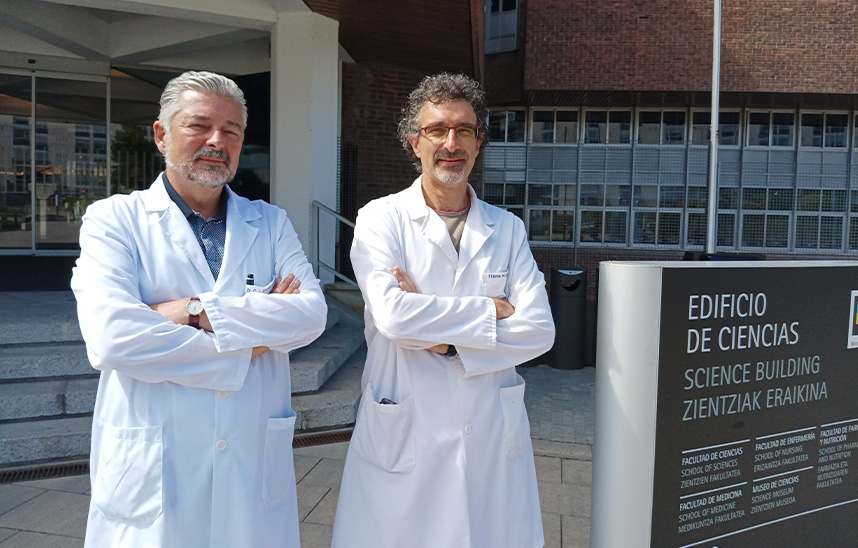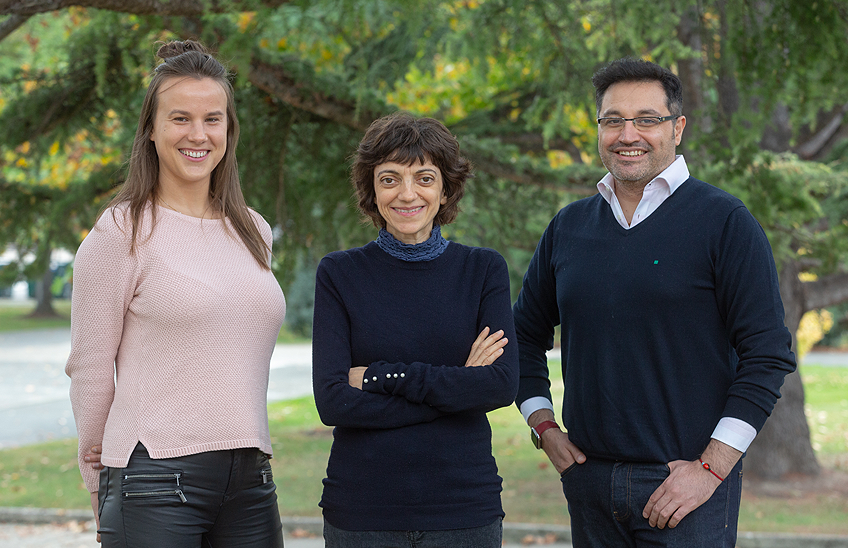The University and Cinfa move towards personalized nutrition through the study of the intestinal microbiota
The FloraGENic test studies the microorganisms in the intestinal tract to prescribe an individualised nutritional treatment, based on dietary guidelines and probiotics.

FotoManuel Castells<br>/De izquierda a derecha y de arriba abajo: Fermín Milagro Yoldi y Carlos Javier González Navarro, de la Universidad de Navarra, y Eduardo González Zorzano y Amaia Ibáñez, de Cinfa.
14 | 02 | 2022
After seven years of joint partnership and research , the research center in Nutrition of the University of Navarra and Cinfa have taken an important step towards personalised nutrition through the study of the intestinal microbiota, by means of the FloraGENic test. This tool, which has been available in pharmacies since January available , provides precise information and action on one of the factors that most influences the general state of health: the intestinal microbiota.
Its goal is to detect, from a stool sample , possible imbalances in the composition of the microbiota and to obtain benefits in tackling digestive disorders, weight problems or reinforcement of the immune system to, at final, contribute to the overall wellbeing of the person. After combining this information with the characteristics and lifestyle habits of each person, it is possible to prescribe an individualised nutritional treatment, based on dietary guidelines and probiotics. As Eduardo González Zorzano, Cinfa's scientific expert, comments, "this tool is a continuation of the joint research that both centres began seven years ago to innovate in personalised nutrition, offering citizens cutting-edge treatments that take into account their genetic or personal characteristics, as well as their lifestyle habits".
According to the director of Innovation of the research center in Nutrition of the University of Navarra, Carlos Javier González Navarro, "this study constitutes a complete analysis of the intestinal microbiota. It is based on a study of 500 Spanish people, of both sexes and a wide range of ages, and also incorporates patients with various pathologies and information on their usual per diem expenses and lifestyle. The research has identified the characteristics of the microbiota that are most associated with development obesity, insulin resistance and other metabolic pathologies".
NGS sequencing technology
In the FloraGENic test, the reading and analysis of the intestinal microbiota is carried out thanks to an innovative technology available to the University of Navarra. "This NGS sequencing technology allows us to identify the genera and most of the bacterial species present in the stool sample and to quantify them. All this in a much faster, cheaper and more informative way than the tools used in traditional microbiology, which required specific cultures in Petri dishes", explains Fermín Milagro Yoldi, the main researcher of project.
With the results of the sample, its analysis and comparison with an exhaustive bibliographic review and the data of the Navarre centre, a profile of the intestinal microbiota staff is configured, relating the presence and quantity of the different bacteria with possible health problems.
Hand in hand with the pharmacy
Along with the analysis of the microorganisms present in the microbiota, FloraGENic also takes into account personal characteristics of the individual, such as weight, age, body mass index or possible allergies or food intolerances, as well as lifestyle habits or dietary subject . All this information is collected by the pharmacist specialised in nutrition to indicate the most suitable per diem expenses for each person and to be able to complement it with probiotics that help to combat possible intestinal disorders.
Similarly, unlike the individual's Genetics , the body's microbiota does change over the course of life, so it is important to monitor it over time after the recommendations have been implemented.



